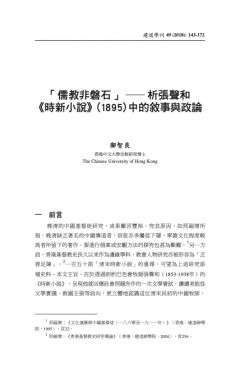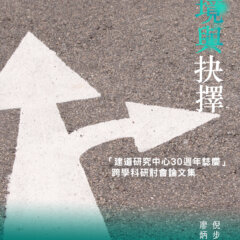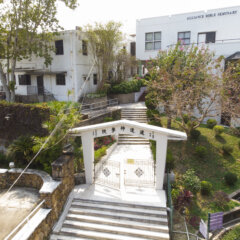「儒教非磐石」──析張聲和《時新小說》(1895) 中的敘事與政論/鄺智良
鄺智良
撮要
新近發現的「清末時新小說」手稿(1895),有助今人理解晚清中國基督 徒對救國議題的思索。甲午戰爭結束,傅蘭雅(John Fryer,1839-1928年)於 《申報》、《萬國公報》及《教務雜誌》(Chinese Recorder)刊登徵文啟事,徵求以基督教語調批判社會三弊 ─鴉片、時文、纏足 ─的小說,巴色會教牧張聲和(1853-1938年)的《時新小說》為參賽作品之一。本文目的,在於透過對《時新小說》進行文本分析,呈現張聲和所構思的敘事有何特點,並他從基督教視角出發對社會現狀作出了怎樣的詮釋,務求助讀者從文學實踐、救國主張等面向,更立體地認識這位清末民初的中國名牧。《時新小說》是一部以淺文言寫就的章回小說,作者以「家庭」結構敘事,人物互動上,受三弊所困的「廢翁」一家扮演尋索治弊之道的主體,西教士徐牧師則扮演此「道」的「發送者」,廢翁一家的覺悟及對治法的尋索是敘事動力所在。政論上,張聲和側重於對時文弊的針砭,將之視為甲午敗仗的主因;然而,更深層的原因在於中國的「道」出了問題,道是衍生教化與風俗之本,作者認為,儒教只為「人道」,並非可靠的 「磐石」,基督教「天道」方為長治久安之根本。
ABSTRACT
The manuscripts of the “New Age Novel” (1895) discovered in 2006 can enhance our understanding on how Chinese Christians in late Qing thought about and expressed on the issue of national survival. After the end of the First Sino-Japanese War, John Fryer (1839-1928) advertised in Shun Pao, A Review of the Times, and Chinese Recorder to collect novels written in “Christian tone” concerning three social problems including opium smoking, imperial examination system, and foot binding. Chinese pastor Zhang Shenghe (1853-1938) from The Basel Mission participated in the contest with his work New Age Novel. In this article, NAN will be analyzed to show the characteristics of Zhang’s narrative and his interpretation of the social reality under a Christian point of view. Readers are expected to broaden their understanding of this well-known pastor in the late Qing and early Republic period through getting known of his literary practices and political opinions. NAN is a traditional Chinese novels (zhanghui xiaoshuo) written in simple wenyan. Zhang uses “Family” to structure the narrative. In terms of the character interactions, Feiweng family that is suffering from the three social problems acts as the subject searching for “the way” of curing, while Pastor Xu from the West acts as the “sender” of “the way”. The awakening and searching for curing of Feiweng family constitute the narrative momentum. For political comments, Zhang particularly emphasizes the problem of imperial examination system and treats it as the main cause of China losing the war. Furthermore, the crucial reason of China’s weakness is the deficiency of “Dao” (the way) in China which gives rise to her teaching and culture. Zhang states that Confucian is just the principle by man (ren dao) which is not “the Rock” to build upon, while Christianity is the heavenly principle (tian dao) that can bring China strength and wealth.
原載於《建道學刊》49期(2018年1月),頁 143-172。
Latest Articles
[電子書]困境與抉擇:「建道研究中心30週年誌慶」跨學科研討會論文集/廖炳堂、倪步曉主編
2025 年 1 月 2 日
一篇特稿:好好事奉主! / 梁國強
2025 年 1 月 1 日
「牧範」與「硬淨」! / 梁國強
2024 年 11 月 1 日
Highlights
從梧州到長洲:建道神學院125年的挑戰與恩典 / 陳智衡
2023 年 10 月 1 日
微小教會的見證/高銘謙
2023 年 6 月 1 日







